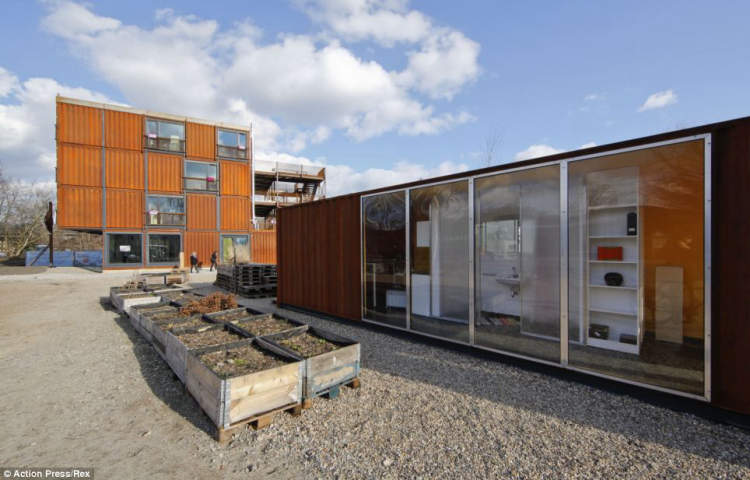Germany is home to many exiting educational opportunities and is becoming an increasingly popular destination for international students. With a diverse range of options for student housing, it can be difficult to know which one is best for you.
This article will take a look at various student housing options that can be found in Germany. From luxurious apartment buildings to shared hostel rooms, we will explore what each option has to offer and what questions to consider in order to decide which one is the right choice for you.
Introduction to Student Housing in Germany
For international students, figuring out student housing in Germany can often be daunting. Germany is well known for its excellent universities and strong academic standards, but finding somewhere to live can often be a challenge. Germany’s accommodation options offer a mix of different styles, costs, and locations, so there’s something for everyone.
Student housing in Germany is typically provided in purpose-built student accommodation buildings, known as Wohngemeinshaften or Studentenwohnheim. These are usually apartment-style dwellings and are centrally-located, so they’re close to all the amenities a student needs. Many student buildings are grouped together in the same area, so there’s often a great sense of community. There are also lots of private and shared options available, so students can find something that suits their budget and needs.
The cost of student housing in Germany can vary significantly, and largely depends on the type of accommodation. Studentenwohnheimen are usually the most affordable option, while private apartments can be more expensive. Most universities also provide a list of off-campus housing options, so students can easily locate the best options for them.
Whatever a student’s budget they will, in most cases, find suitable accommodation in Germany. While it can take a bit of legwork and research to find the perfect place, there are lots of options available. Exploring the country’s student housing options can be a rewarding experience, and with a bit of effort, students can find their dream home away from home.
Options for Student Housing in Different German Cities

Studying in a different country can be intimidating and stressful. One of the first steps when preparing to study abroad is finding suitable student accommodation. Germany offers many accommodation options for students, depending on the city or area of study.
The four most common types of student accommodation in Germany are student dormitories (Studentenwohnheim), university dormitories (Universitätssiedlungen), renting private rooms or flats (Wohnheime oder Privatzimmer), or renting shared apartments (Gemeinschaftswohnungen). Depending on the location, there are likely to be pros and cons of each type of housing.
Student Dormitories
Student dormitories, or Studentenwohnheim, are residential communities that provide shared accommodation for students. They are available to most students in Germany, the cost of living is usually cheaper in comparison to other types of housing and they can be ideal for meeting new people. Some student dormitories even offer meals, which can make settling in even easier.
University Dormitories
University dormitories, or Universitätssiedlungen, are operated by the universities themselves. They are often cheaper and generally provide better-quality accommodation than student dormitories. Students living in university dormitories are usually required to abide by certain rules, for example, they may not be allowed to bring guests back to their rooms. This can be a great option for those looking for a more settled environment.
Private Rooms or Flats
Renting a private room or flat, or Wohnheimen oder Privatzimmer, is generally more expensive than other options. It can be a great option if you’re looking for more independence or a greater sense of security. Private rooms and flats are usually furnished and tenants generally receive fewer rules and restrictions compared to student or university dormitories.
Shared apartments, or Gemeinschaftswohnungen, are usually owned by private landlords and can be ideal for students looking for a sense of community. Tenants usually share basic amenities, like a kitchen, bathroom or lounge area, and rent an individual room within the apartment. This form of housing is generally cheaper than renting a private room or flat, however, it can be harder to find.
Before deciding on accommodation, research the different options available in the city or area of study to make sure you find the right one. With so many to choose from, exploring student housing options in Germany can seem intimidating. However, finding suitable accommodation can be the key to a successful and enjoyable experience.
Pros and Cons of Different Student Housing in Germany
Germany is a country that is popular for international students due to the various opportunities and resources available. As a student with accommodation needs, there are a variety of student-housing options available in Germany. It is important to research various housing options to determine what housing will best fit the individual’s needs and lifestyle preferences. In this article, we will explore the pros and cons of different student housing in Germany.
Home Stay
Living with a trusted local may be a good option for students looking for housing in Germany. Home stays offer a unique host family experience and a way to learn about the German culture. Benefits of home stays include, learning German language and culture, having a local support system, and creating lifelong connections. Cons are that home stays may sometimes lack privacy and space.
For international students wanting to live in a private apartment with roommates, shared apartments may be a good option. Benefits of living in a shared apartment are typically lower costs and a strong social community. Cons are that the living arrangement may lack privacy, and the bills may be complex to divide.
Student Residence Halls
Student residence halls, also known as studentenwohnheime, provide students a unique college-like living experience in Germany. Benefits include dorm-style living, all-inclusive-utilities, and strong on campus student community. Cons include strict curfews, living among local students, and possible language barriers.
Private Accommodations
For students seeking a private, independent living arrangement, a private room or apartment may fit best. Benefits of renting a private room include less noisy living environment, more privacy and independence, and flexible rental terms. Cons include higher rental prices, bills, and maintenance costs.
Ultimately, every student has different accommodation needs. It is important to research various student housing options available in Germany to determine which fits best with the student’s needs and lifestyle. We hope this article was able to provide general information about the pros and cons of different student housing in Germany.
Conclusion
Finding suitable student accommodation in Germany need not be difficult. With the plethora of options available to students, it is possible to take advantage of the excellent value for money offered throughout the country and find somewhere suitable to live and study.
Moreover, with the various cost savings that can be made by opting for shared accommodation, the advantages of living in Germany as a student can become even greater. For those who are willing to be flexible and creative, student housing in Germany can provide an excellent, convenient and affordable option.




